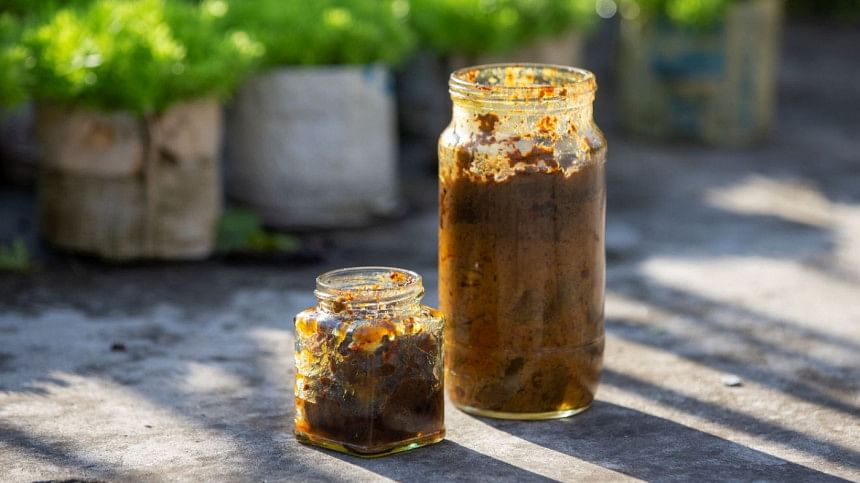Achaar: A jar of spices, sunshine and love

At my grandmother's place, summer was defined by green mangoes, aroma of mustard seeds and the blanket of sunshine. I recall dozing off in the afternoon, lulled by the repetitive thuds of spices being pounded in the mortar.
I would look at the sliced mangoes put out in the sun and would fight the temptation to taste them. Soon they would be sealed in bottle bathing into fragrant mustard oil, and then they would wait to be delivered to their loved ones. I have become so accustomed to the flavour of my grandma's achaar that I cannot bring myself to try any store-bought pickle even though she is no longer able to make them.
One day, during the pandemic, I picked up the phone and dialled my grandmother's number to ask her for the pickle recipe. When I first started grinding the toasted mustard seeds, I was brought back to a scene from the novel Zami by Audre Lorde, which described a young lady emerging into womanhood while pounding various spices.
In that instant, I felt what can only be described as a raw and primal connection with my foremothers — each move of the pestle resonating over the ages. I imagined women whose lives were centred around their families expressing their individuality through the flavours of the pickle.
The aroma of the spices transported me to the familiar scent of grandmother's cotton sari, which was warm, welcoming, and full of affection. To lazy afternoons spent listening to stories about princesses and other enchanted beings who lived in thick forests. I felt a connection with her and the other women in my family who elegantly carried the tradition of spices and care forward bottled up with salt, turmeric, and a big squeeze of lime juice with an indefinite shelf life.
The cherished recollections of witnessing my grandma skilfully removing the seeds off of fresh mangoes while telling us stories about how back in the day, on hot summer afternoons, all the women in the home would gather together to make pickles. In the midst of the spices and the drying mangoes, ordinary lives were exposed. Women who were worn out from responding to their husbands and children's pressing needs would let their hair down and seek solace in the ritual of communion.
I think about those women, their regular lives, and the discussions they had revolving the pickle jars at a time when we feel the need to continuously chronicle and sell a narrative of our lives to be relevant.
We do not know precisely what they talked about, but we do have countless stories that have been passed down through the generations as oral literature about a period when they spent their time caring for families. It's possible that their hopes and ambitions had been peeled away and thrown away like so many of the mango skins.
Shadya Naher Sheyam attempts to live life like Ashima from The Namesake. Talk to her about Mira Nair films at: [email protected]

 For all latest news, follow The Daily Star's Google News channel.
For all latest news, follow The Daily Star's Google News channel. 



Comments